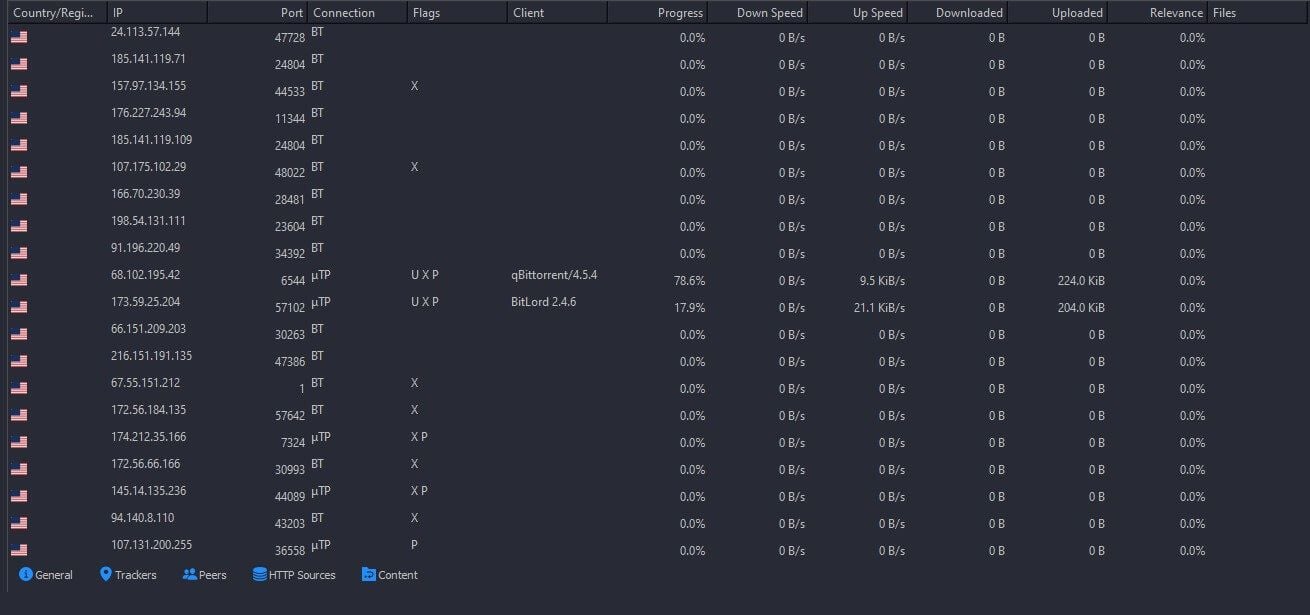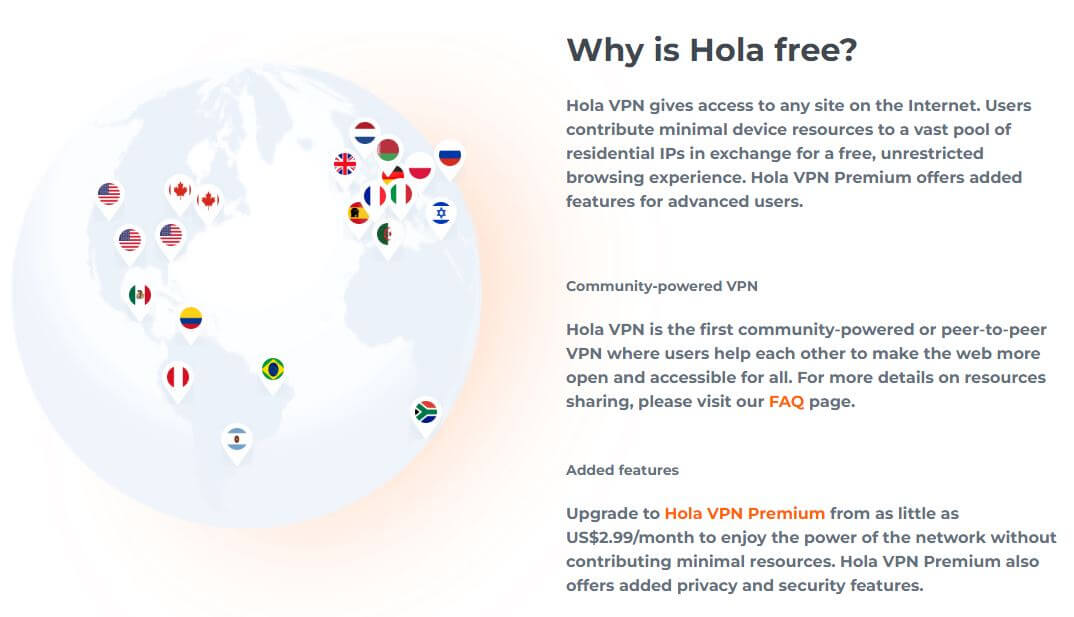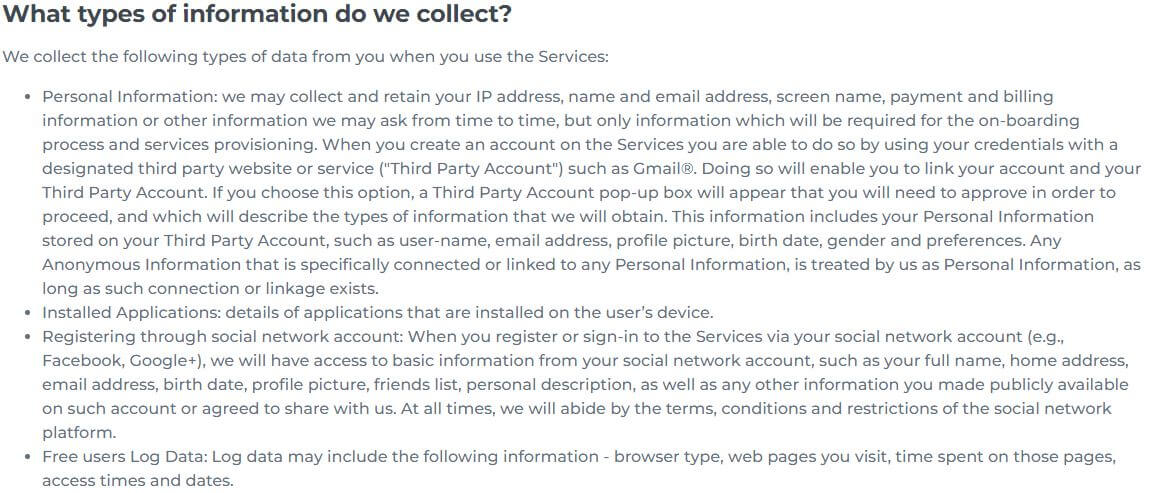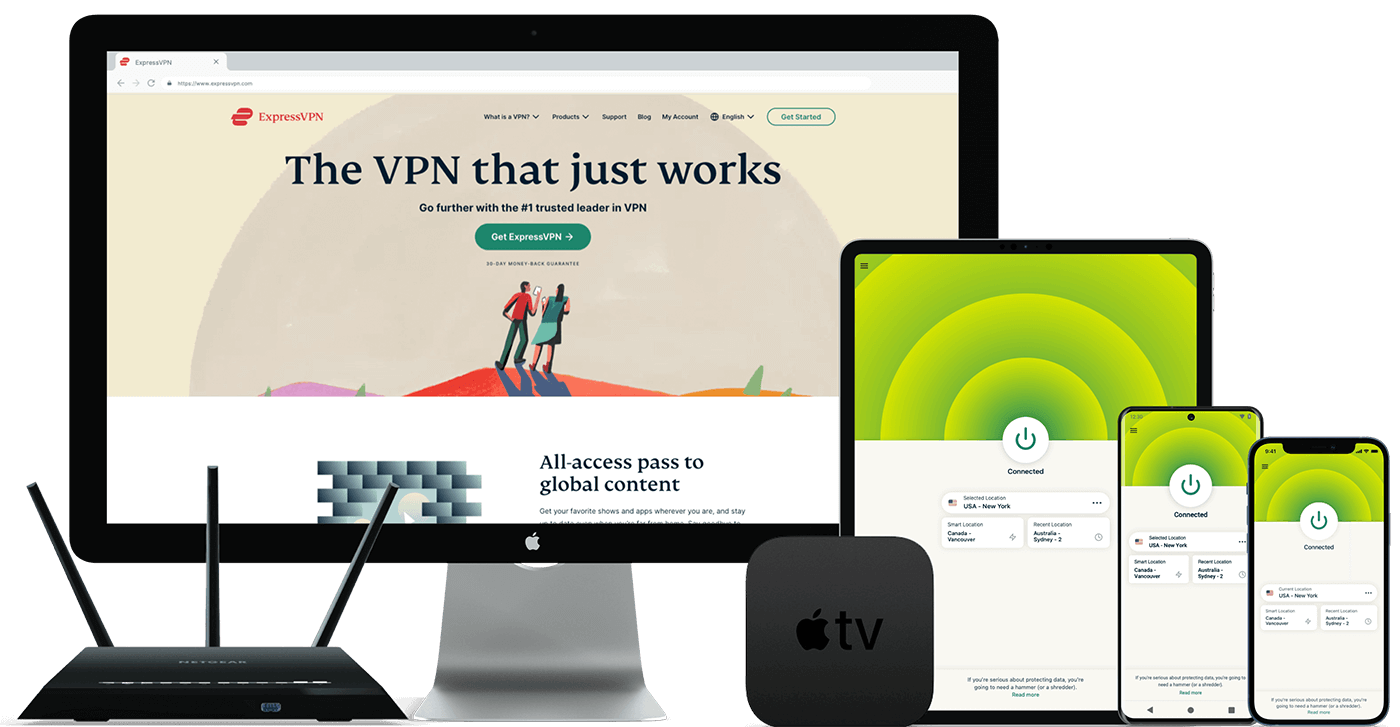When mentioning a P2P VPN, most people will think about a provider that allows torrenting. On the market, we can find plenty of these providers, especially if we’re talking about premium choices. However, some of you also know about P2P VPNs in a different sense.
We’re talking about VPNs that use P2P to deliver and establish the connection. This one is a rare kind, though, and only a few providers rely on this method. Is P2P VPN safe, then? Well, let’s just say it’s not the best type of connection with a few security vulnerabilities.
In today’s article, we’ll explain everything there is to know related to this subject. We’ll also give you an example of a P2P VPN and see how exactly this type of VPN works. It’s going to be interesting, so let us begin, and you – scroll down and read on.
What Is P2P?
First of all, we need to explain what is P2P. It stands for peer-to-peer, which we explained in our article about VPNs for torrenting. This is the technology used primarily for sharing files across multiple devices, making it easy to download or upload files quickly.
Torrenting is the same as P2P, actually. When you’re downloading a file through a torrent client, multiple peers send you small parts of that file. As a result, all of you “work” to distribute a particular file to your device successfully.
That’s why torrenting depends on peers – or seeds if you will. If there aren’t any seeds, the download can’t start. The more seeds (peers) there are, the faster the download and the chance of success is significantly higher. P2P, however, has many security vulnerabilities.
For one, each user can see the IP address of other users in the network. If you’re downloading a torrent file, you should click on the Peers tab below. You’ll see something like this:

As you can notice, we’re seeing the IP addresses of multiple users, as well as their client download/upload speeds, and so forth. Keep in mind that this is just an example of torrenting and P2P file sharing, as a whole, doesn’t have to be insecure.
If you have your P2P network that you use to share files with your friends, it’s actually pretty secure and fast. And this brings us to the P2P VPN meaning and the way it works.
What Is P2P (Peer-to-Peer) VPN?
Traditional VPNs work by encrypting your traffic and making sure you’re really anonymous online. They do this by routing your traffic through a VPN tunnel, changing your IP address, and applying AES-256 encryption. Also, VPNs connect you to a remote server located somewhere else.
That’s why you can, for instance, get an IP address from Japan, all while you’re in Europe or Africa. This is very important to know! VPNs use encrypted servers to assign you a new IP and route your traffic through that server, instead of your ISP’s server.

Now, to explain what is P2P VPN and how it works, we need to look at Hola VPN – probably the most famous P2P VPN on the market. This provider explicitly says that it takes advantage of peer-to-peer. Basically, there are peers in the Hola network, which allow you to enjoy the provider limitlessly.
Just to make it clear, this service is free while offering unlimited traffic, decent speeds, and the ability to unblock every streaming service. This is because it’s not a traditional VPN and it uses no servers. Instead, it relies on these peers (who are the users of Hola’s service), which you can use to change your location online.
In simple terms, when you choose a location in Hola VPN, you actually hijack the IP address of one of the peers from that location. You then use his IP to go online and do whatever you want. If you use Hola, you’re also a peer, and your IP address is available for other people to use.
Hola wouldn’t work without these peers. Let’s say all users disappear and stop using it – you wouldn’t have any “server” to connect to. We recommend checking our Hola VPN review to find out more about it. But overall, we think you get the point.
Hola will ask you to share your idle resources before using it, which means making your resources available to other users. If you’re in Germany and someone wants that IP, he can use YOUR IP address. And what if that user is doing something illicit online? Well, you’re in trouble!
Is P2P VPN Safe to Use? Pros & Cons
If you’ve ever used Hola, you know this provider is decent. In fact, if we’re being honest, at first, it looks like the best free VPN service ever. No limits in terms of bandwidth and performance, plus, the provider seems like it can unblock streaming services and allow torrenting.
However, a free P2P VPN like this can’t be safe. And, in general, a peer-to-peer VPN is NOT safe to use because of the way it works. Imagine someone taking over your IP address and selling drugs online. Do you think that’s safe? Would you feel safe providing your IP to a random person thousands of kilometers away?
Well, that’s how Hola works – take a look above! If we go back to torrenting, for example, this is an extremely unsafe activity. Users who download the same file see your IP, which means they can find out your location and potentially harm you – physically or “digitally.”
The situation with a P2P VPN isn’t all black and white, although it’s more black. Let’s quickly go over its advantages and shortcomings.
Bypassing (Geo)Restrictions (Advantage)
Streaming services like Netflix, Hulu, Disney+, and others tend to easily detect many VPNs. If this happens, the Virtual Private Network is blocked and won’t work. When using Hola VPN, this issue seems to disappear and magically, the service easily works with plenty of restricted sites.
Why is that?
Because a P2P VPN doesn’t function like a normal Virtual Private Network. It doesn’t use servers, which streaming platforms can detect and blacklist their IPs. Instead, the traffic looks like it’s coming from a regular user – which it does – as you’re just hijacking an IP from another person (peer).
As a result, people can unblock Omegle or enjoy restricted betting and streaming sites more easily.
No Traffic Limits (Advantage)
Hola VPN, as a famous P2P VPN, offers no traffic limits. You get unlimited bandwidth for FREE, which sounds like a dream. Not only that but the performance is also relatively decent, plus, you can even download torrents to maximize the enjoyment.
Intrusive Loggnig (Disadvantage)
That’s only the tip of the iceberg, though. A free P2P VPN like Hola is riddled with issues that you’ll find downright despicable. Just for your info, we took a screenshot of its privacy policy – look at this bad boy:

Here, you will see that the VPN stores everything – and we mean EVERYTHING! We’re talking about your IP, browsing history, which sites you visited, download history, email address, installed apps on your devices, browser type, timestamps, and so on.
Hola even sells this information to third parties to earn money. It’s been known to work with Bright Data (former Luminati) to deliver residential IP addresses to that service. No wonder Bright Data is among the largest proxy providers on the planet.
When using a P2P VPN like this, you’re putting your privacy in jeopardy without knowing a thing about it. We hope we opened your eyes now. Despite being open about its logging, Hola is still a bad service that we don’t recommend.
We’ll talk about an alternative in a minute, though.
Security Vulnerabilities (Disadvantage)
Another disadvantage lies in security vulnerabilities. We already talked about this. Using a P2P VPN means you’re part of the network and you’re handing out your idle resources on a silver plate. Users can use your IP to mine crypto, sell drugs online, engage in illegal betting, and so forth.
You can do the same, of course, but then, you’re jeopardizing other users. Plus, since you’re giving away your idle resources, it means your device will always “work”, even when you’re not using it. This can result in unwanted slowdowns that will, over time, annoy the hell out of you.
P2p VPN Alternative: Which VPN to Use Instead?
As people who aren’t fond of P2P VPNs, we can’t recommend using them. Instead, we recommend using “real” Virtual Private Networks. Those that fully encrypts your traffic by letting you connect to a secure remote server. If you’re unsure which provider to use, we recommend ExpressVPN.
This service is miles ahead of Hola VPN in every aspect. It has 3,000 servers in 94 countries, with excellent speeds, unlimited bandwidth, and exceptional streaming capabilities. It’s not free, however, which ends up being a good thing for one simple reason.
It doesn’t need to sell your private information to earn money! Since you’re already paying for it, ExpressVPN vows to not store any logs, which is proven by recent audits from PwC, KPMG, and Cure53. Unlike Hola, it won’t jeopardize your privacy in any way.

Its security features like AES-256 encryption, a kill switch, and IP leak protection also help. Plus, there are RAM-based servers, ensuring no data is stored, for the highest level of security. On top of that, you get torrenting capabilities and you can unblock Netflix, Hulu, and other services.
ExpressVPN also offers applications for all devices, so you can enjoy VPN protection on Android, Windows, iOS, Linux, and macOS. In spite of not being free, we think it’s good to mention a few incentives. For one, there’s a 30-day refund policy for all plans, so you can use it risk-free.
In addition, ExpressVPN offers a 49% discount and 3 free months for the annual plan. This incentive lets you save quite a bit of money, with the possibility of getting a refund in the first 30 days. We recommend at least trying ExpressVPN. You’ll see why it’s better than any P2P VPN – Hola in particular.
In Conclusion
P2P VPN providers represent a good option for people who couldn’t care less about their privacy. Since Hola is unlimited and above all – free – it’s easy to take advantage of it and enjoy unlimited internet access. If you don’t want to risk your privacy, you should avoid a VPN like this at all costs.
With all of its shortcomings, a free P2P VPN is among the worst solutions you can use. Instead, connecting to a paid provider like ExpressVPN is going to yield many more benefits. With unlimited bandwidth and actually rock-solid security/privacy, ExpressVPN is way more reliable.
That said, there are other equally interesting alternatives:
3000 servers
105 covered countries
30 days money-back guarantee
8 simultaneous connections
9.4 /10
12000 servers
100 covered countries
45 days money-back guarantee
7 simultaneous connections
9.2 /10
7492 servers
118 covered countries
30 days money-back guarantee
10 simultaneous connections
9.8 /10
You’ll find more details in our ranking of the best VPNs of 2025.
In the end, though, it’s your choice. Since millions of people use Hola, they either don’t care about their privacy or they’re oblivious to its logging practices. But you can be a good friend and explain to people that P2p VPNs are a risk to their privacy.